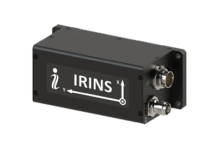
When you hold a smartphone, switch on an LED TV, or use a medical diagnostic device, you are touching the final result of precision, patience, and teamwork on the factory floor. Yet behind the gleaming surface of every gadget lies the quiet contribution of those who build it — the assembly line experts. These are the men and women who solder circuits, connect harnesses, test devices, and ensure that every component performs flawlessly. They are the unsung heroes of India’s electronics manufacturing revolution. As India moves toward becoming a global electronics manufacturing hub, this invisible workforce — wiring harness operators, assembly supervisors, SMT (Surface Mount Technology) operators, testing technicians, and line quality controllers — is driving quality, productivity, and innovation. Recognizing and empowering them is key to sustaining “Make in India” momentum. Electronics Sector Skills Council of India (ESSCI) plays a pivotal role in this mission by developing skill standards, certification systems, and structured career pathways for millions working in the assembly ecosystem.
The Backbone of Electronics Manufacturing
An electronic product is the sum of its intricate parts — resistors, capacitors, chips, wires, sensors, displays — all carefully assembled in sequence. The assembly line is where design meets reality. Here, speed, precision, and coordination determine the success of every batch.
Assembly line experts operate in this high-performance environment, performing tasks such as:
- Mounting components on PCBs (Printed Circuit Boards)
- Soldering and wiring connections
- Assembling casings and sub-units
- Conducting visual and functional testing
- Packaging finished goods
They ensure that every product meets design specifications, safety standards, and quality norms. Even a tiny soldering error or misaligned harness can cause device failure — which makes their attention to detail invaluable.
The Foundation of India’s Electronics Success: Electronics Sector Skills Council of India (ESSCI) has been instrumental in developing and certifying these skilled professionals who form the cornerstone of India’s manufacturing ecosystem. As the sector has grown from ₹1.9 lakh crore in 2014-15 to ₹11.3 lakh crore in 2024-25 – a six-fold increase – it has created over 2.5 million jobs, with projections indicating the need for 12 million skilled workers by 2027-28. This tremendous growth has been supported by strategic government initiatives including the Production-Linked Incentive (PLI) schemes, which have attracted investments of ₹1.76 lakh crore and generated over 1.35 lakh direct jobs in electronics alone.
Profiling the Assembly Line Experts
· Assembly Line Operator: An Assembly Line Operator is responsible for assembling parts and components in a manufacturing setup, ensuring products meet quality and efficiency standards. They follow blueprints, operate machinery, and perform inspections to maintain production flow. Strong attention to detail, teamwork, and adherence to safety and process protocols are essential for success.
· EMS Technician: An EMS (Electronics Manufacturing Services) Technician handles assembly, testing, and repair of electronic products and circuit boards. They operate soldering equipment, troubleshoot PCB issues, and ensure compliance with quality standards. Technical knowledge of electronic components, precision handling, and ability to work with automated systems are vital for maintaining high production quality.
· Wiring Harness Assembly Operators: At NSQF Level 3, Wiring Harness Assembly Operators represent entry-level specialists who create the neural networks of modern electronics. ESSCI’s comprehensive 300-hour training program encompasses wire harness assembly fundamentals, color coding, component identification, and electrostatic discharge (ESD) precautions. These operators earn between ₹3-6 lakhs annually at entry level, with experienced professionals commanding up to ₹12 lakhs per annum. Major automotive and electronics companies like Maruti Suzuki, Bajaj Auto, and Tata Motors actively recruit certified wiring harness operators for their manufacturing facilities.
· PCB Assembly Operators: PCB Assembly Operators at NSQF Level 4 represent the skilled artisans who bring electronic circuits to life. ESSCI’s 450-hour training program covers both through-hole technology (THT) and surface-mount technology processes, component identification, soldering techniques, and quality control procedures. Entry-level PCB assembly operators earn ₹4-8 lakhs annually, with senior technicians earning up to ₹18 lakhs per annum in advanced manufacturing facilities. The role requires understanding of RoHS compliance, dry soldering prevention, and functional testing procedures.
· Electronic Hardware Assembly Operators: Operating at NSQF Level 4, Electronic Hardware Assembly Operators specialize in assembling complete electronic systems, particularly for emerging sectors like electric vehicles. The 450-hour ESSCI training program emphasizes planning assembly sequences, using precision hand and power tools, and implementing standard operating procedures. These operators earn between ₹5-9 lakhs at entry level, progressing to ₹15-25 lakhs as senior specialists. Companies like Dixon Technologies, Foxconn, and Samsung actively recruit these specialists for their advanced manufacturing operations.
· Assembly Supervisors: At NSQF Level 5, Assembly Supervisors represent the management tier of manufacturing excellence. ESSCI’s training program covers production planning, team management, quality control systems, and health and safety compliance. Assembly supervisors earn between ₹8-15 lakhs at entry level, progressing to ₹25-35 lakhs as production managers. The role requires strong communication skills, conflict resolution abilities, and understanding of both technical processes and personnel management.
Technology and the Future of Assembly Work
Automation and robotics are transforming assembly lines, but they are not eliminating human roles — they are upgrading them. The future factory needs technicians who can work alongside collaborative robots, manage sensors, interpret data dashboards, and ensure continuous improvement. ESSCI’s focus on Industry 4.0-compatible training prepares India’s workforce for this shift. Courses include fundamentals of mechatronics, PLC operations, IoT-based monitoring, and digital quality management systems. This approach ensures that Indian technicians remain globally competitive as the world’s supply chains diversify and relocate manufacturing bases to India.
Conclusion
In the story of India’s electronics revolution, assembly line experts are its most vital yet understated characters. From the nimble hands of a wiring harness operator to the keen eye of an assembly supervisor, each role is crucial to delivering the reliability and quality that define “Made in India” products.
Through structured skill development, certification, and career progression pathways, the Electronics Sector Skills Council of India (ESSCI) is ensuring that these unsung heroes get the recognition, training, and growth they deserve. They may not feature on billboards or in advertisements, but without them, no electronic product would ever come to life. As India aims to become a global electronics powerhouse, empowering these hands and minds will be the truest measure of progress.
















